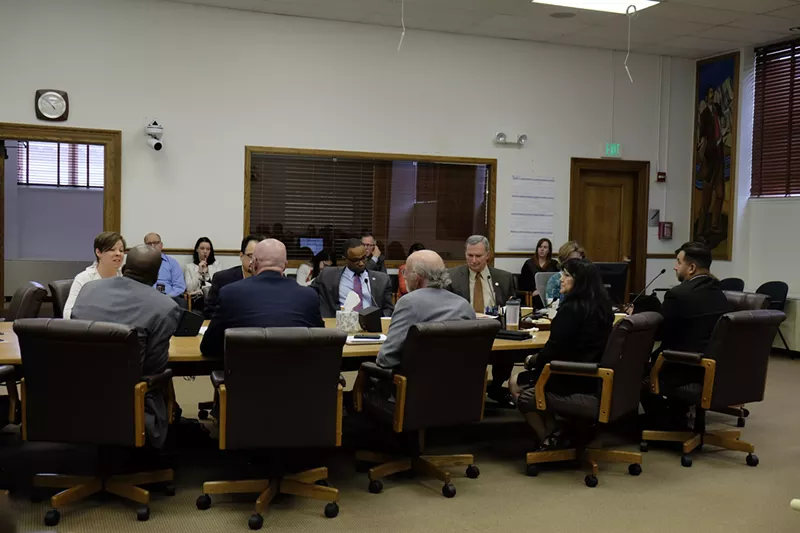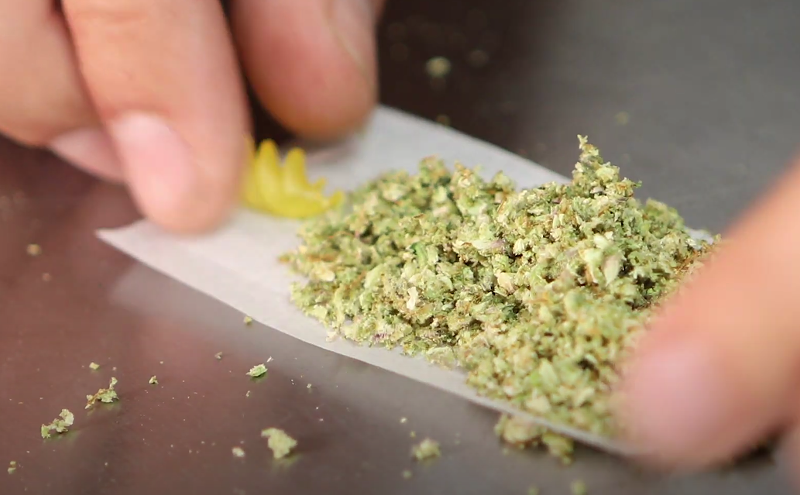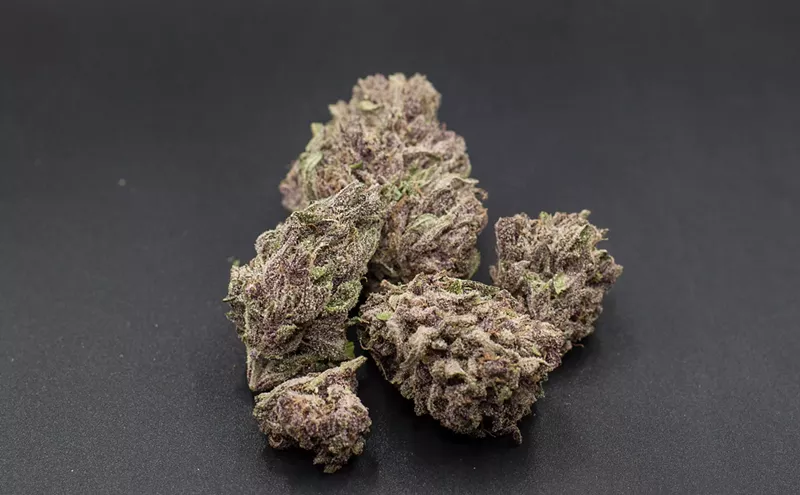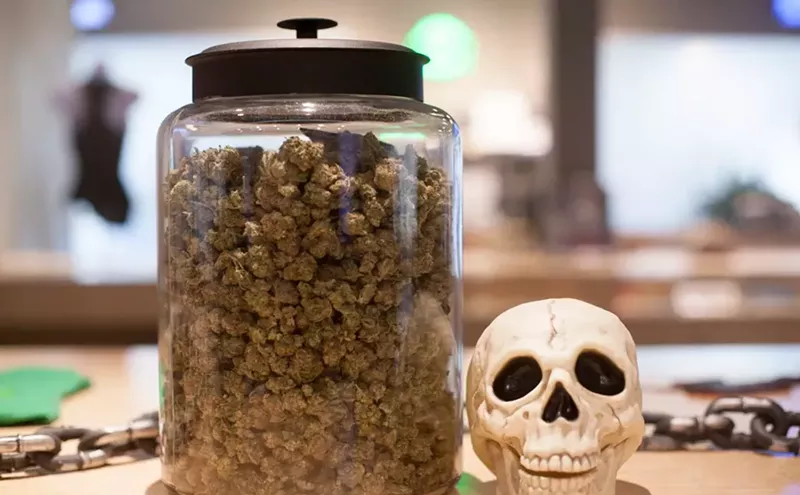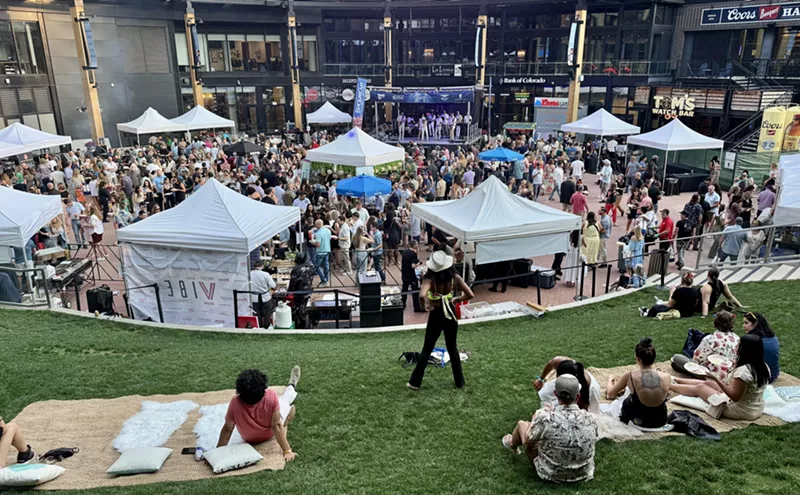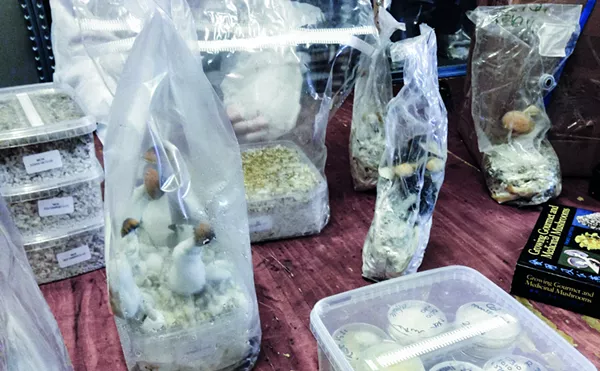A Denver City Council committee met on March 13 to consider a presentation by the Marijuana Industry Group, which made a case for extending the hours of operation for dispensaries in the city. If approved, dispensaries would be able to stay open until midnight instead of 7 p.m.
Every municipality in Colorado that allows recreational marijuana sales has later hours than Denver, according to Kristi Kelly, MIG's executive director, who also serves on Denver's Social Consumption Advisory Committee. Dispensaries in Boulder and Aurora are open until 10 p.m., and dispensaries in neighboring Edgewater and Glendale are open until midnight.
Assistant City Attorney David Broadwell started off the committee meeting by explaining why Denver implemented earlier closing hours for medical marijuana dispensaries back in 2010. Broadwell reminded the council reps that Denver adopted a dispensary licensing ordinance before there was even a state law.
"We were ahead of the game. The explosion of dispensaries on the scene in 2009, and everybody behind the curtain was rushing to catch up with regulations, and so in the fall of that year we began to have conversations in earnest, and one of the issues we tackled was hours of operation," he recalls. "It was this entirely new phenomenon we didn't really have a frame of reference on."
Since the city was dealing only with medical dispensaries back then, councilmembers discussed whether to treat them more like pharmacies or like liquor stores. "Council knew they wanted some kind of hour limitation, purely from a regulatory control perspective, to be able to regulate the distribution in terms of bracketed hours," Broadwell said.
Ultimately, Denver City Council decided to treat the medical dispensary system like the pharmacy system. Initial proposals suggested operating hours from 9 a.m. to 9 p.m., but Denver instead adopted the hours of 7 a.m. to 9 p.m. But that law had a very short shelf life, Broadwell continued, because the state adopted a marijuana licensing law in 2010 that "eclipsed" Denver's regulations. That's when 7 p.m. became the state-wide closing standard for medical marijuana "centers," as they were called back then.
After voters approved Amendment 64 in November 2012, Denver City Council started talking about the rules for recreational dispensaries. A similar discussion arose around hours of operations. At the time, Broadwell explained, the council assumed that medical dispensaries would go away and everything would become retail. "As you know, that didn't happen," he said.
Because medical dispensaries still closed at 7 p.m., councilmembers decided it didn't make sense to have a different closing time for recreational stores. The state later changed that requirement for medical stores, but Denver never changed its rules. "This council hasn't revisited the 7 p.m. closing time essentially since 2013, when we originally put it in place for both medical and recreational," Broadwell told the committee.
Now could be the right time, Kelly and others argued. For staff at dispensaries, as well as people who get off of work between 5 and 6 p.m., the hour-long rush before the 7 p.m. closing can be rough, Kelly said.
Another consideration is Denver's newly approved social consumption legislation, which will allow marijuana use at certain venues. "We are subject to the will of the voters of Denver," Kelly told the committee. "Denver is currently in rule-making for initiated Ordinance 300, and that allows for non-marijuana businesses to apply for permits to operate social consumption facilities. So consumers are going to be coming to Denver now and having the ability to have safe access to consume cannabis in businesses inside of Denver, but the likelihood is that most of these facilities will be opening their doors at the time when dispensaries are closing their doors, and so that creates a supply gap. If your dispensary is closed, there's only a couple ways to find product. Way one is that you drive over the state borders into the neighboring municipalities to access safe and legal product, or another alternative is you might just find a way through alternative, illegal means, and we want to discourage that to the best of our ability."
During the public-comments portion of the meeting, Henny Lasley, co-founder and executive director of Smart Colorado, argued that keeping dispensaries open later could increase youth use.
Smart Colorado formed after the passage of Amendment 64, but Lasley noted that it is not an anti-marijuana organization working to repeal marijuana policy in Colorado. The organization has thousands of members across the state, and Lasley said she came to this meeting because the decisions that elected bodies make will very much impact the future for children. She also said that Smart Colorado does not have any skin in the game: It does not receive funding from the marijuana industry or any tax source.
"The perception of harm is a big concern to Smart," Lasley said. "Kids don't think marijuana is harmful, and the challenge is we now have over 300 food products that contain highly potent marijuana, as well as concentrates, in addition to flower and bud. Our point of being here today is to say, look, we don't know if this is the right decision or the wrong decision, but what we do want you to do is pull in the department heads that work for you every day that are your experts. Let's talk to Public Health and Safety. Let's talk to the police department. Let's talk to our schools about whether they think this is going to impact our kids, because at the end of the day, that's what really matters."
Councilman Christopher Herndon said he hasn't heard from anyone but the marijuana industry about this issue. He'd mentioned it in his newsletter, and one person responded. "He thinks ten o'clock is acceptable," Herndon added, to chuckles from other members.
Councilman Paul Kashmann said he's also heard from only one group. A registered neighborhood organization had taken a straw poll of its members; three had said to keep closing hours at 7 p.m., and six had wanted them to be extended to 9 p.m.
Kashmann told the other reps that he's not against keeping dispensaries open later, but he wants to hear a good explanation for making the change. "I want a compelling reason other than just because," he continued. "We get into a fear-based argument when it comes to kids as reasons not to do it, but I also think we're going to a fear-based argument as to do it.... I think we're using fear-based arguments both directions.... It's a fair argument, though, to say we've only heard from one side in committee."
Compared to MIG's full presentation, Smart Colorado only had three minutes during the public portion of the meeting, he pointed out. But Councilman Albus Brooks said there was a reason for that: "The industry is presenting a proposal. Smart Colorado wasn't presenting a proposal. They were responding to one, and that's what we typically do."
Still, Kashmann said he wanted to hear from more parties before moving forward. "I respectfully disagree with my friend Councilman Brooks," he said. "I think it makes sense to extend [the conversation] — not for the industry, but for the consumer. I think it's only fair."
And that's exactly what the committee decided to do. In a vote, the members split on whether to approve a proposal to extend later hours or hear from more constituents, so there will be another meeting.

Audio By Carbonatix
[
{
"name": "GPT - Billboard - Slot Inline - Content - Labeled - No Desktop",
"component": "23668565",
"insertPoint": "2",
"requiredCountToDisplay": "2"
},{
"name": "STN Player - Float - Mobile Only ",
"component": "23853568",
"insertPoint": "2",
"requiredCountToDisplay": "2"
},{
"name": "Editor Picks",
"component": "17242653",
"insertPoint": "4",
"requiredCountToDisplay": "1"
},{
"name": "Inline Links",
"component": "18838239",
"insertPoint": "8th",
"startingPoint": 8,
"requiredCountToDisplay": "7",
"maxInsertions": 25
},{
"name": "GPT - 2x Rectangles Desktop, Tower on Mobile - Labeled",
"component": "24956856",
"insertPoint": "8th",
"startingPoint": 8,
"requiredCountToDisplay": "7",
"maxInsertions": 25
},{
"name": "Inline Links",
"component": "18838239",
"insertPoint": "8th",
"startingPoint": 12,
"requiredCountToDisplay": "11",
"maxInsertions": 25
},{
"name": "GPT - Leaderboard to Tower - Slot Auto-select - Labeled",
"component": "17676724",
"insertPoint": "8th",
"startingPoint": 12,
"requiredCountToDisplay": "11",
"maxInsertions": 25
}
]

